This has been a year full of music and, more specifically, full of great music. Even more specifically, 2016 has been a year full of great music from very famous people. But there’s more to life than Kanye West, or Drake, or even—hear us out—Beyoncé. While big name releases tend to dominate both media coverage and the broader cultural conversation, it’s extremely important to remember that there are a lot of artists out there who have been consistently releasing new music, and despite the fact that they may not have ended up splashed across every blog in the known universe, a lot of said new releases are extremely dope.
We here at Noisey make it a point to keep up with as much new music as humanly possible, which means that sometimes, bands and albums fly under our collective radars. In an effort to rectify some of our more egregarious misses, we’ve pulled together a list of 26 of the best releases that we think haven’t been talked about enough this year—and that we think deserve just as much attention as Queen Bey (or at least Drake).
Videos by VICE

Steve Gunn – Eyes on the Lines
The cover of Steve Gunn’s latest LP Eyes on the Lines—which is another excellent addition into the multi-instrumentalist and incredible guitarist’s decade long career that consists of nearly two dozen projects—is an old, kicked around soccer ball. It’s worn, beat up, probably flat, and sitting in the weeds. The ball’s positioning feels like the type of object that you’d pass by while walking on a path through the woods, not really thinking about how it got there or why it’s there—if you think about it at all—or even how you found yourself walking in the woods. It’s a subtle reminder of the sprawling nature of humanity, how we innocently move into places we aren’t really welcome—both physically and mentally—and when we decide to leave, we leave a mark. Eyes on the Lines is a record about this very idea—wandering without reason until you happen to find one, whether it’s accidental or purposeful, and even then, you’re still not quite sure whether or not there’s an answer. Gunn’s characters are happily lost, walking around and kicking the dirt, wanting to shout at the heavens for answers—but probably too exhausted by life to actually do anything that would require that amount of energy. Instead, they might ask, let’s have a drink? This is music designed for getting older. It’s marvelous. – Eric Sundermann
 YFN Lucci – Wish Me Well 2
YFN Lucci – Wish Me Well 2
Last year’s excellent Wish Me Well established YFN Lucci as one of Atlanta’s most winning new talents, his warbling sing-song the soulful counterpoint to his labelmate Rich Homie Quan’s bouncy funk. The sequel isn’t quite as consistently great, but it’s got plenty of hit material (“YFN”; the disarmingly romantic, Plies-featuring “In A Minute,” a.k.a. “Fucked On”) and the same devastating candor. Lucci makes music with heart, often musing on the deeper implications of his lines or taking an unexpected turn into profound emotional territory. “You know you gotta listen to your elders / they done been through everything that they tell us,” he suggests on “Letter from Lucci” before switching focus in the next line: “Have you ever felt pain when everything numb?” And he makes music with melodies, music that’s straight-up pretty, like the elegiac duet with Quan in the hidden second half of that song. Seriously, listen to Lucci sing. – Kyle Kramer
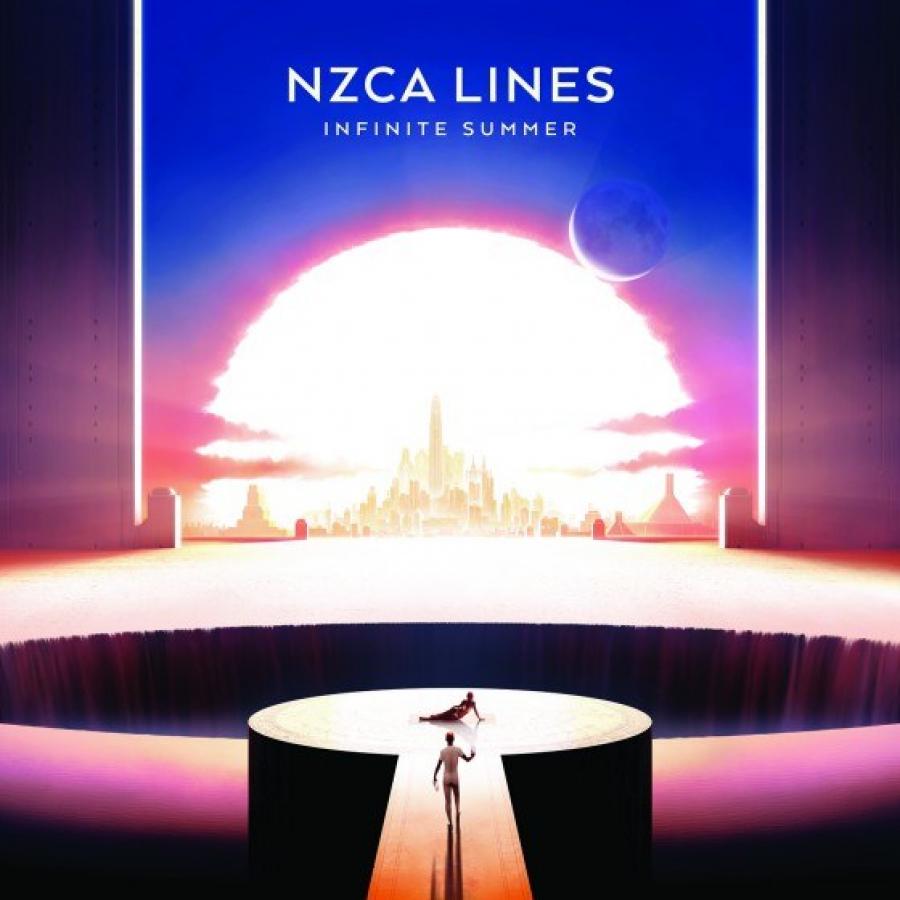 NZCA LINES – Infinite Summer
NZCA LINES – Infinite Summer
Michael Lovett is an analog synth nerd, a sci-fi fan, an imaginative romantic who casts spells in the magic of his melodies. It feels like a long stretch since his 2012 debut, but in the meantime the London-based 20-something has been touring the world as part of Metronomy and doing studio time with Parisian pop sensation Christine and the Queens. Like his first album, Infinite Summer is a concept record, this time about far-in-the-future-Earth where mankind’s soon to be snuffed out. Accordingly, the planet is divided into city dwellers clinging to the past, while the rest of the denizens keep pushing forward, and everyone’s partying all the time because the sun’s swelled to a burning red sphere and it’s summer 365 days a year. Lofty storylines aside, on the throb and kick of “Two Hearts,” the synth-swayed title track, “Sunlight,” and “New Atmosphere” (there are simply too many highlights to list), Lovett manages to stitch a beating heart into songs could sound clinical in the precision of their 80s pop, retro-futurist grooves. It’s clever without being obtuse; original yet familiar. If the Earth does implode in our lifetime I’d be happy dancing to this into oblivion. – Kim Taylor Bennett
 Santa Marta Golden – Resilience
Santa Marta Golden – Resilience
From the first moment you lay eyes on it, Santa Marta Golden’s Resilience pulls an elegant bait and switch—the muted, feminine cover art and the band’s own name mask the darkness within. The Spanish quintet hail from Granada, a medieval city nestled at the foot of the soaring Sierra Nevadas, and they incorporate shades of that grandiose atmosphere into their avant-garde doom opuses. Their sound dances with lead feet, shifting its weight between progressive doom, dark hardcore, moody electronic passages, and outright bone-crunching heaviness. It’s dreamy, tense, and anxious all at once, and colored by the band’s willingness to play with textures and language; vocalist Mel switches from Spanish to French to English and back again, her pliant vocals effortlessly skipping from a sweet, poppy coo to a hoarse bark and rabid howl. There’s precious little information available online, but Resilience is the kind of album that makes you want to dive deeper into a band’s story (and back catalogue). Don’t sleep on it. – Kim Kelly
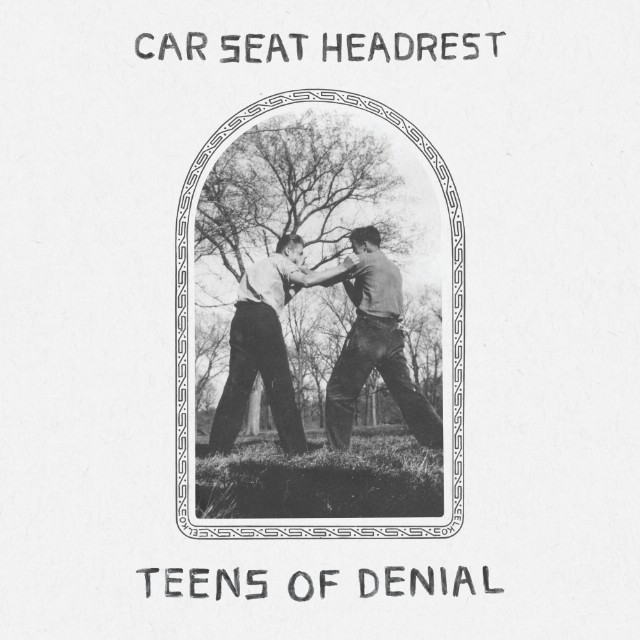 Car Seat Headrest – Teens of Denial
Car Seat Headrest – Teens of Denial
Rumors of rock’s death have been greatly exaggerated. See: Car Seat Headrest’s Teens of Denial. Though technically the thirteenth album from project mastermind Will Toledo, his first proper studio output sees the prolific 23-year-old stripping away the reverb and masking of his previous work to reveal a muscular guitar record that doubles as a concept album about feeling young and hollow—think The Strokes for kids who grew up on Xanax and the internet.
Hailing from the Talking Heads school of songwriting, Denial’s songs feel more like stories, each with a musical arc that builds and resolves. In the process, Toledo captures, with equal parts wit and poignancy, the freefall between losing your innocence and reclaiming your self-respect. Tracks alternate between power chord urgency and thoughtful, slow-burning arrangements that advance what in less capable hands might be written off as indie rock anachronism: reckless mixing, rhythmic fake-outs, lingering melodies, and dynamic builds that collapse into total chaos. It makes guitars exciting again, and makes you wish you were still in high school so you could write its lyrics all over your notebook. – Andrea Domanick
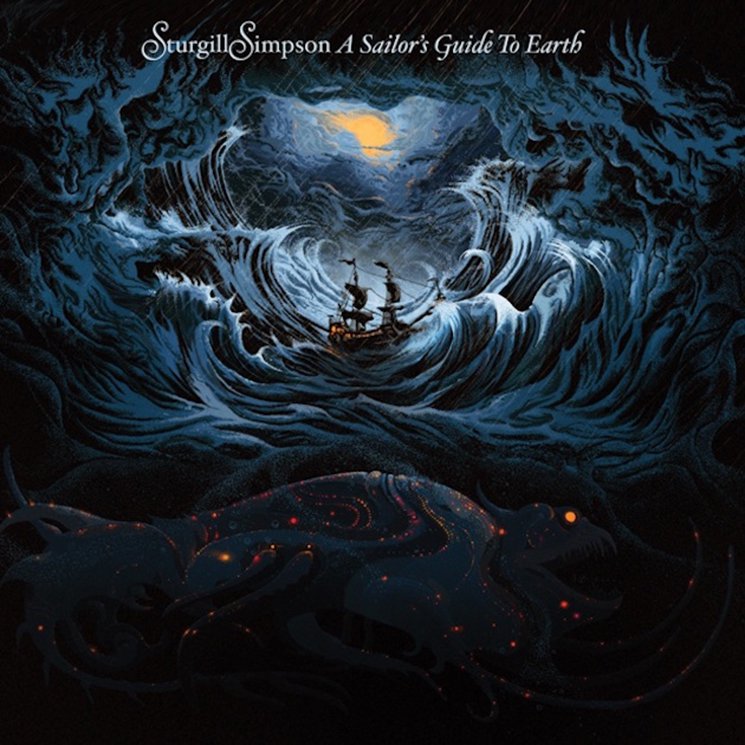
A Sailor’s Guide to Earth
Sturgill Simpson –

A Sailor’s Guide to Earth
Sturgill Simpson is no newcomer to country music—he’s been playing since 2004—but his latest album, A Sailor’s Guide to Earth, is his major label debut. The record is written from the perspective of a sailor leaving his family to go back to the sea, and is dedicated to his first-born son. Every perfect track drips with Marvin Gaye’s influence (who Simpson admitted he worked hard to emulate on this record), even the so-good-it’s-almost-offensive cover of Nirvana’s “In Bloom,” a reminder of country’s long tradition of drawing from wide-ranging sources and a rebuke of any idea that Simpson might fit into some prescribed narrative of an alt-country revival. Anyone who can turn a Nirvana song country and make it work this beautifully has got to be something special. – Annalise Domenighini
Majid Jordan – Majid Jordan
Majid Jordan, the alt-R&B K-Ci & Jojo of our generation (sans the indecent exposure charge), have put forth one of the strongest debuts of the year with their self-titled album, which is nuanced in production but effortless in execution. Majid Al Maskati and Jordan Ullman are simply talented musicians, and that talent is present throughout the project. Everything sounds good (excluding “Shake Shake Shake,” which is just… horrible for reasons that cannot be appropriately explained within the imposed word limit). “Make it Work” sounds like a fitness infomercial from the 80s, and the simmering synth riffs that run through “Pacifico” add to the feeling that you’re listening to a quest for love that spans decades. It’s unsettling to think how little attention has been given to the album aside from the internet furor over the two working in “music-writing tents.” Nonetheless, the duo deliver a great album from beginning to end, accounting for the second best OVO Sound release this year. I’ll let you guess what the other one is. – Jabbari Weekes
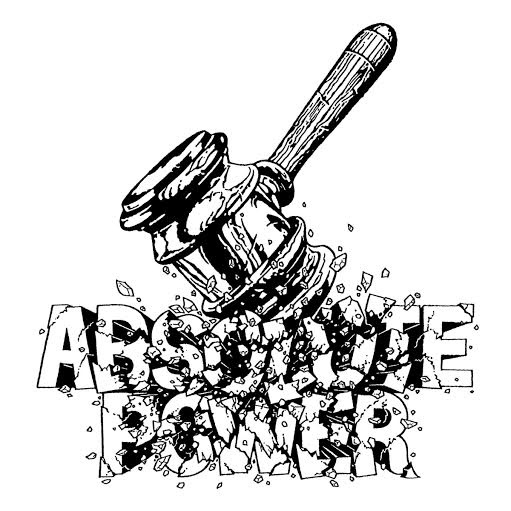
Absolute Power
Absolute Power –

Absolute Power
Music publications have a limited interest in hardcore bands. Typically, only the style du jour acts like Turnstile or legends like Converge ever get attention. Mark McCoy’s esoteric brand of hardcore, on the other hand, will probably never break into that spotlight. McCoy (of Charles Bronson and Failures) has been releasing records on his label, Youth Attack, for years, and each one has been more meticulously crafted than the last. On the self-titled debut by his newest project, Absolute Power, the frontman puts forth a razor-sharp blast of power violence that feels like an unending assault. This is a hardcore record made by a total perfectionist. – Dan Ozzi
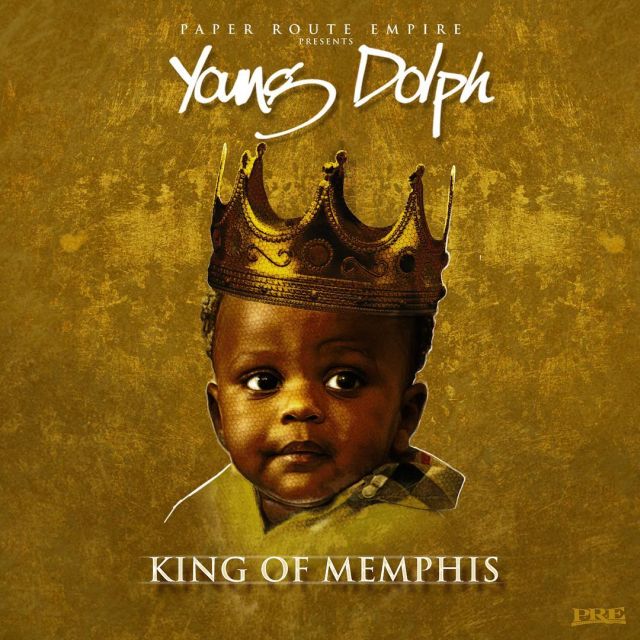 Young Dolph – King of Memphis
Young Dolph – King of Memphis
King of Memphis follows the same formula Dolph typically follows: Rap really well about your personal and professional achievements to the point people believe that it is probably the same way you talk IRL. All he does on King of Memphis, just like his other projects, is tell the truth over beautiful trap beats.
When he says, “Young nigga blessed / I feel like everyday God’s putting me through a test / since I was 17 I ain’t been able to get no rest / bill time coming up, and guess who pays the rent?” on the album opener “Facts,” you can’t help but identify with the sentiment, even if you’ve never lived it. What makes King of Memphis so special is that we’re witnessing the fully mastery of this formula. Songs like “Royalty” and “USA” see Dolph at his creative peak, sounding as comfortable as he does important and authoritative. King of Memphis has hints of Thug Motivation 101‘s inspirational qualities and the completeness that characterized Hell Hath No Fury, resulting in a series of songs from an artist who continues to be under-appreciated by the masses but beloved by all who feel his words. – Trey Smith

Oh No
Jessy Lanza –

Oh No
Hamilton, Ontario is a weird, industrial-focused place that overlooks grubby Lake Ontario and… that is pretty much the city’s scene. How it has managed to help produce such vivid sounds from Jessy Lanza is a head-scratcher that, God willing, The New York Times never catches onto. Lanza follows up the dark synth of Pull My Hair Back with the sparklier Oh No. It’s a stunner of an album that is haughty in tone (on “VV Violence” she cries “I say it your face / but it doesn’t mean a thing / No!”) and sexy and supple ( “Vivica”) in production. Lanza is part of a rising set of electro-R&B female artists (alongside equally stunning musical humans Kelela and Kehlani) who somehow get continuously overlooked in a substantial way. Though Lanza’s voice sounds small, she has much to say, and she projects that on this record. Lanza’s yelps over poppy, skin-tingling beats is impressive and makes for a dazzling record that should soundtrack the rest of your summer. – Sarah MacDonald
The Dirty Nil – Higher Power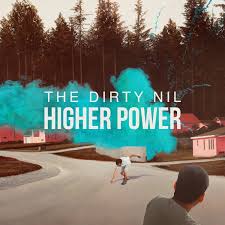
The Dirty Nil’s Luke Bentham once told Noisey that his whole life has been spent trying to capture the essence of a photo of The Stooges he saw as a kid. In it, Iggy Pop is about to dive into the crowd while the rest of the band pounds their instruments in front of an endless wall of amps. That pretty much says it all about The Dirty Nil. Were this any other era of rock, the band would be the most famous band on the planet. They’ve got a style that could easily translate to any time period, any audience, and any venue. After years of skating by on singles and EPs, the hard-touring and outrageously likeable Canucks finally dropped their long-awaited debut, Higher Power, and it blows the fuckin’ lid off of everything. – Dan Ozzi
 Nico Yaryan – What a Tease
Nico Yaryan – What a Tease
This guy’s debut album only came out at the beginning of June, so there’s barely been enough time for it to be overlooked, but nevertheless, this isn’t the kind of collection to announce its arrival noisily. Equally, Yaryan’s an unassuming sort: a northern Cali-born, LA-based artist who spent many years drumming for Hanni El Khatib until the pull to create his own music yanked him right out of the Hanni-sitch. But by this point he’d fallen for a girl in Holland (he met her on tour), and in pursuit of love, Yaryan split time working on a pot farm to fund his trips back to Amsterdam. But y’know, long distance relationships are tough, so it’s not surprising that this experience offered grist for his lyrical mill. For the most part, What a Tease harnesses the breezy melancholy that 70s easy listening artists honed to drive-time perfection: the guitars are warm like a hug from a hot dude in a nice knit (listen to “Witch Love,” “The Magic,” the chorus of “Infinity” for golden hour evidence). The songs sigh and pine and opine, and sometimes come off amusing in their obsessional creepiness, like album closer “I’ll Stay with Your When You Die,” which sounds like it was recorded in the clattering back alley of a popular restaurant and features the line “I’ll stay with you when you die / I’ll never leave you alone.” While we’d all like to believe that love springs eternal, when the object of your affection is dead and rigor mortis cold, it might be time to join happn. – Kim Taylor Bennett
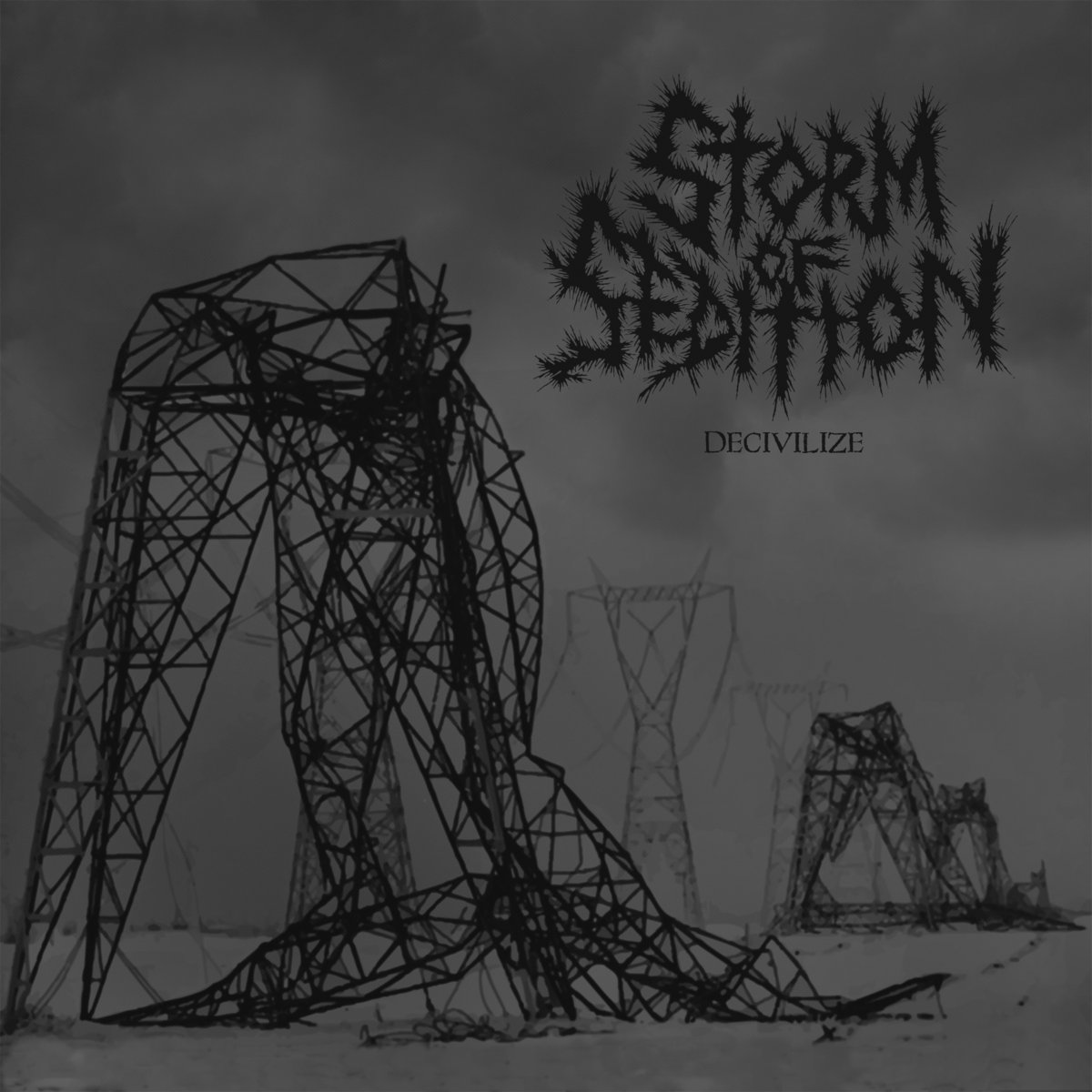 Storm of Sedition – Decivilize
Storm of Sedition – Decivilize
For Storm of Sedition, the political is not only personal, it’s their entire raison d’etre. Self-described as an “anti-civilization anarchist crust punk band,” Storm of Sedition is based in Victoria, BC, which is considered by anti-colonialists to be occupied Lekwungen and Songhees Territory. Drawing from a strong crust punk background, the band also incorporates elements of death metal, black metal, and grindcore, swirling it all together into a cohesive, poison-tipped aural assault. Their latest album, Decivilize, is a green anarchist screed against the horrors of civilization, poisonous colonialism, and cultural annihilation, an impassioned indictment of the status quo (and, often, of the left itself). The music is powerful on its own, but once one reads the lyrics, Decivilize hits even harder, and the world it offers in our wretched present’s stead feels even more like a possibility, instead of just a dream.
– Kim Kelly

Boy Man Machine
Drose –

Boy Man Machine
Drose, from Ohio, are making some of the most forward-thinking noise rock out there. Earlier in April, the band released their debut full-length, Boy Man Machine, an incomparable weapon that dips into metal, drone, and experimental to create something terrifying. Singer Dustin Rose’s voice is a machine all its own, transforming and evolving in the same breath. In the music’s most claustrophobic moments, his voice is a nice reprieve from all the chaos—until it makes the switch into a frightful gasp. There’s a genuine sadness on Boy Man Machine; lyrics bemoan the rise of machine and the loss of self, while guitars lack any sign of humanity, distorted and turned into noises that sound like the loading of guns, the turning of cogs in the machine. In one of the album’s few moments of easy recognition, “A Clay Mind” carries a sludgy riff that eventually drives itself off the rails under Rose’s mad and demented voice. Anxieties and fear about technology and what humanity is capable of have never made themselves clearer in a record; there’s no gasp of air big enough to save oneself from man’s demise. – John Hill

Forever Sounds
Wussy –

Forever Sounds
Chuck Cleaver and Lisa Walker are the best songwriters in America. They have been for over a decade, too. Hell, go back to Cleaver’s work with Ass Ponys and you’ll find its embryo whittled out of that sweet, melodic Americana. But that was all a while back now and Wussy are a different animal, never more so than on Forever Sounds. There’s more to sift through here than on, say, 2011’s Strawberry or 2007’s Left for Dead, both of which led with their prettiness and invited you in on that basis. Look to 2014’s Attica! for the signs of progression, though. On Forever Sounds, from the feedback of intro “Dropping Houses,” right through the thick swirl of “Hand of God” and the bright shimmer of “Majestic-12,” things are heavier in the truest sense. The songs at first sound tied down, never quite able to float away, centring around straight riffs rather than gentle inflections. But, a few listens in, they’re just as beautiful, not least on the expansive “Gone.” Push through to the arresting, understated “My Parade,” and that awkward, lovely grace is at the front again, even if Cleaver’s voice starts out as singed as the accordion chords it unfurls with. Eventually there is a clarity and it’s Walker’s high harmonies that draw it out. The fact that it’s a worthy inclusion into Wussy’s catalog should in itself make Forever Sounds an essential album. – Alex Robert Ross
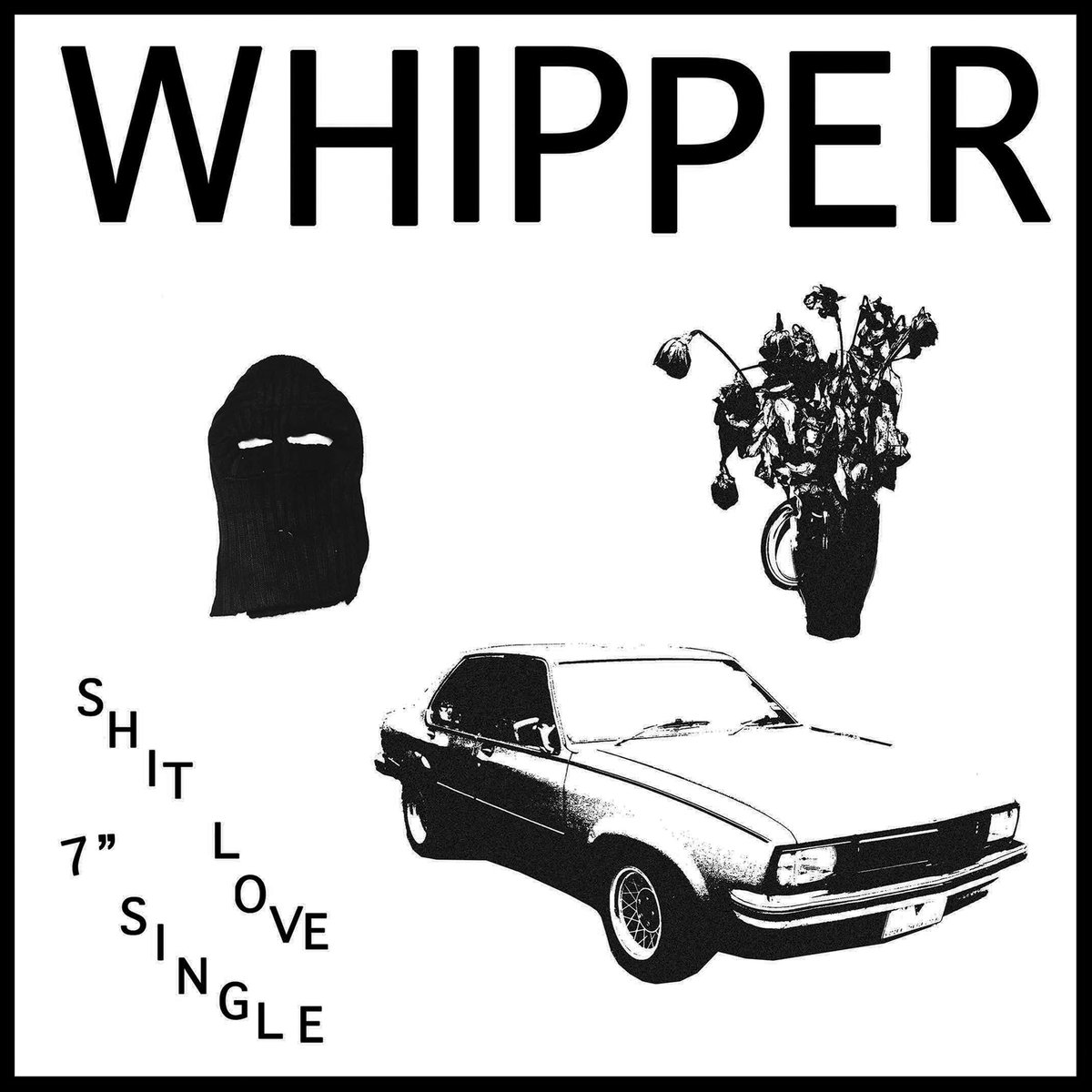
Chase the Rainbow
Whipper –

Chase the Rainbow
From ACDC to the Saints, the Coloured Balls, Bored, and the Cosmic Psychos, Australia has a pretty good track record of producing feisty and loud rock ‘n’ roll. Following in that tradition is newish Melbourne three-piece Whipper, who belt out snarling punk rock that is full of bile and bite. Their debut single on the awesome Aarght Records powers along with a buzzing energy. When Lewis snarls “Drop out of high school” and Elias’ lead break kicks in you can feel the room of bogans with noses full of speed and bellies full of beer, heaving. This is awesome stuff.
– Tim Scott
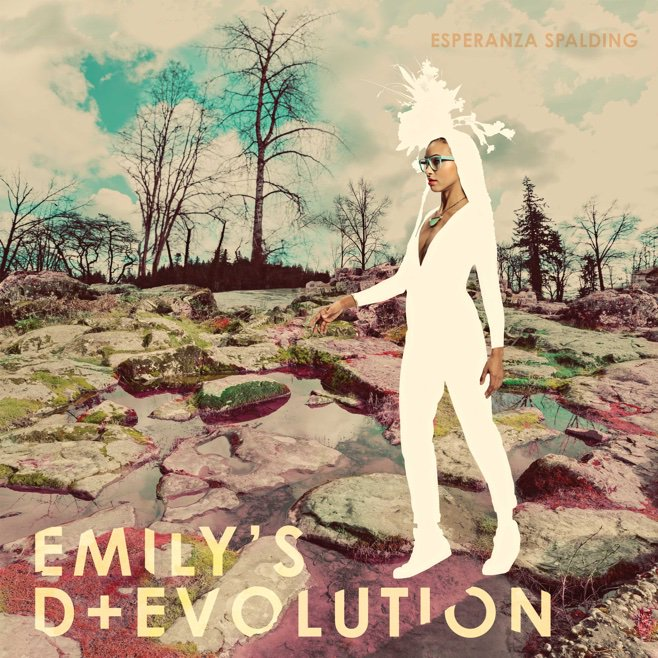
Emily’s D+ Evolution
Esperanza Spalding –

Emily’s D+ Evolution
I’m here to say right now that prog metal rules. Meshuggah is the best music for doing player vs. player combat in World of Warcraft, even though I haven’t played it for *checks calendar* quite a while! Emily is not exactly prog metal, per se, but Spalding certainly flirts with the form by mixing hard funk-rock with geeky jazz fusion elements like winding, chromatic chord progressions and flashy rhythmic shifts. Also, guitar solos! In 2016! But the noodling of Spalding and her band is in service of an artistic immolation. She’s relentlessly self-critical, chastising her own education and her broad appeal, all while literally shredding her songs to pieces. And these are songs; concise, hooky, and focused. Emily is a necessarily bombastic shot in the arm to the world of crossover jazz. You can headbang to it too, if you really want. – Phil Witmer
Wode – Wode
For whatever reason, in the past few years I’ve been a lot less involved in listening to black metal than when I was younger. Wode’s self-titled pushes forth everything I fell in love with in the genre from a young age. With a tilt in a riff, a song easily leaps from a feeling of devastating heaviness into atmospheric moods of isolationism. The song “Spectral Sun” floats the band’s black metal into space; minutes of unmitigated loveliess go by before the song roars back down to earth like a falling meteor. Despite these moments of atmospheric beauty, never once does the band compromise the integrity of their approach to bringing back the genre’s rawness. Wode is an exemplary reminder that, in its purest state, black metal is capable of casting the widest range of emotions without bowing down to anyone. – John Hill
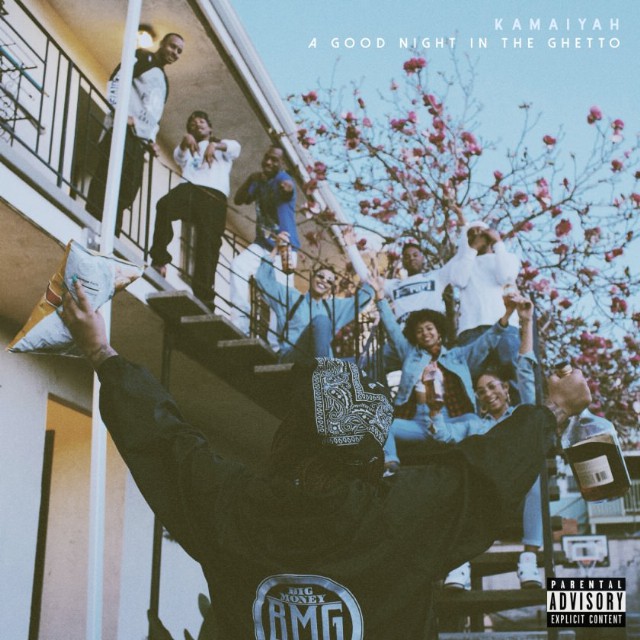
A Good Night in the Ghetto
Kamaiyah –

A Good Night in the Ghetto
A Good Night in the Ghetto is a pure union between smooth, classic G-funk and new-day hyphy, both sonically and spiritually: It’s filled with unapologetic party anthems, but Kamaiyah is also frank about more difficult subjects from her tough East Oakland upbringing. “Fuck It Up,” featuring YG, makes you want to ghostride the whip; “Ain’t Going Home” is a song to kick back and sip forties to; “For My Dawgs” is a dedication track to her close friends who have passed. And then there’s the hit, “How Does it Feel,” which perfectly incorporates the deep bass, bells, and timely claps of so many memorable Bay Area anthems, building to a positive refrain that focuses on making the best out of a situation regardless of worldly circumstances. In each case, the MC shows she’s not just a promising new lyricist but also a broad-minded artist with an understanding that there’s more to making music of substance than a few good ideas and catchy hooks. – Kwele Serrell
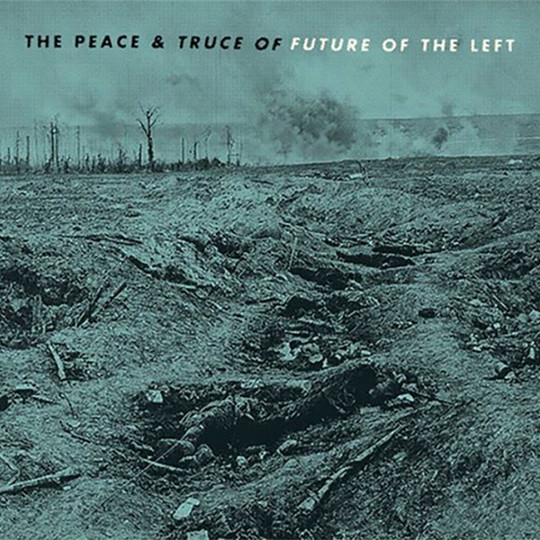
The Peace and Truce of Future of the Left
Future of the Left –

The Peace and Truce of Future of the Left
Future of the Left are a special kind of iconoclast. They surround themselves with enemies and cut them down with absurdity; they adopt voices and personas—assholes, mostly—that skim the depths of disagreeable misery and then push their logic to the edge. Lead vocalist Andrew Falkous has that stand-up’s streak, weather-beaten and ambivalently nihilistic, and he’s been honing it, stretching it out, for the better part of two decades. On the one hand, what sets The Peace and Truce of Future of the Left apart from the band’s back catalog is that it’s one of the British trio’s most musically accomplished: snarling and nasty when it wants to be, absurdly melodic the next moment. It’s not as immediately sludgy and confrontational as 2013’s How To Stop Your Brain In An Accident and it’s all the more deliciously sinister for it. On the other hand, hearing a band almost literally piss all over base, self-congratulatory critiques—try searching for the quotable line in “White Privilege Blues,” it’s not there—is filthily refreshing. – Alex Robert Ross
C.C.T.V. – Practice Tape 3.6.16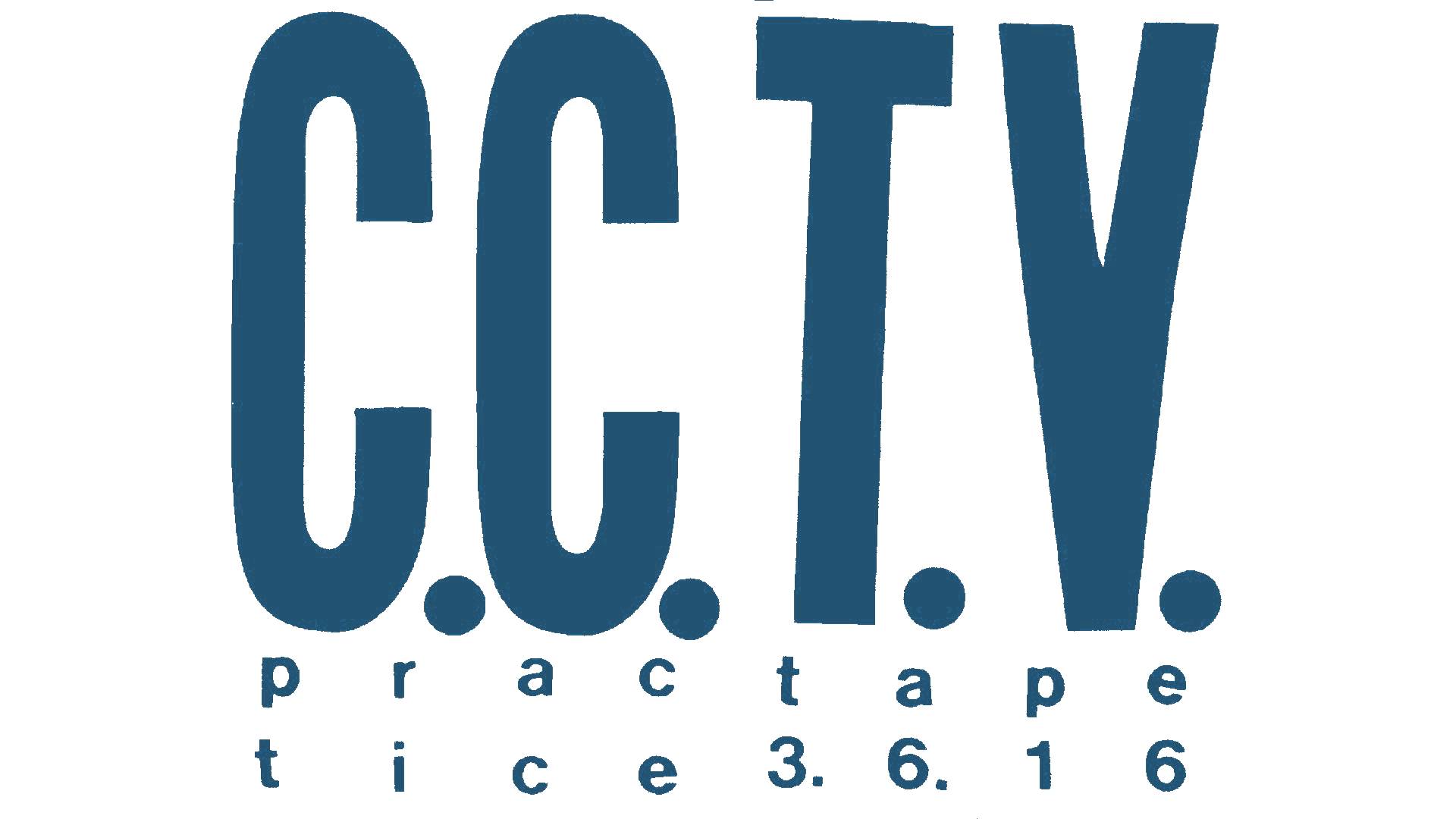
Yeah, so it’s a demo, and it sounds like one, but C.C.T.V.’s Practice Tape 3.6.16 has easily been one of my most played releases of 2016. This Hammond, Indiana, unit that features local punk identity Mark Winter (Big Zit, Coneheads) play frantic, sped-up punk with high pitched vocals and blown out production. This is dorky punk rock just made for Midwestern basements. Since going on sale at Everything Is Not OK 2 Festival in Oklahoma City earlier this year, the tape has been spreading rapidly through blog and YouTube channels. Listen to “Song About Anxiety” and “Song About Sex in a Can” and you immediately understand the appeal in the robotic, Devo-llke spazzouts. 2016 Northwest Indiana is the new 1988 Lower East Side. – Tim Scott
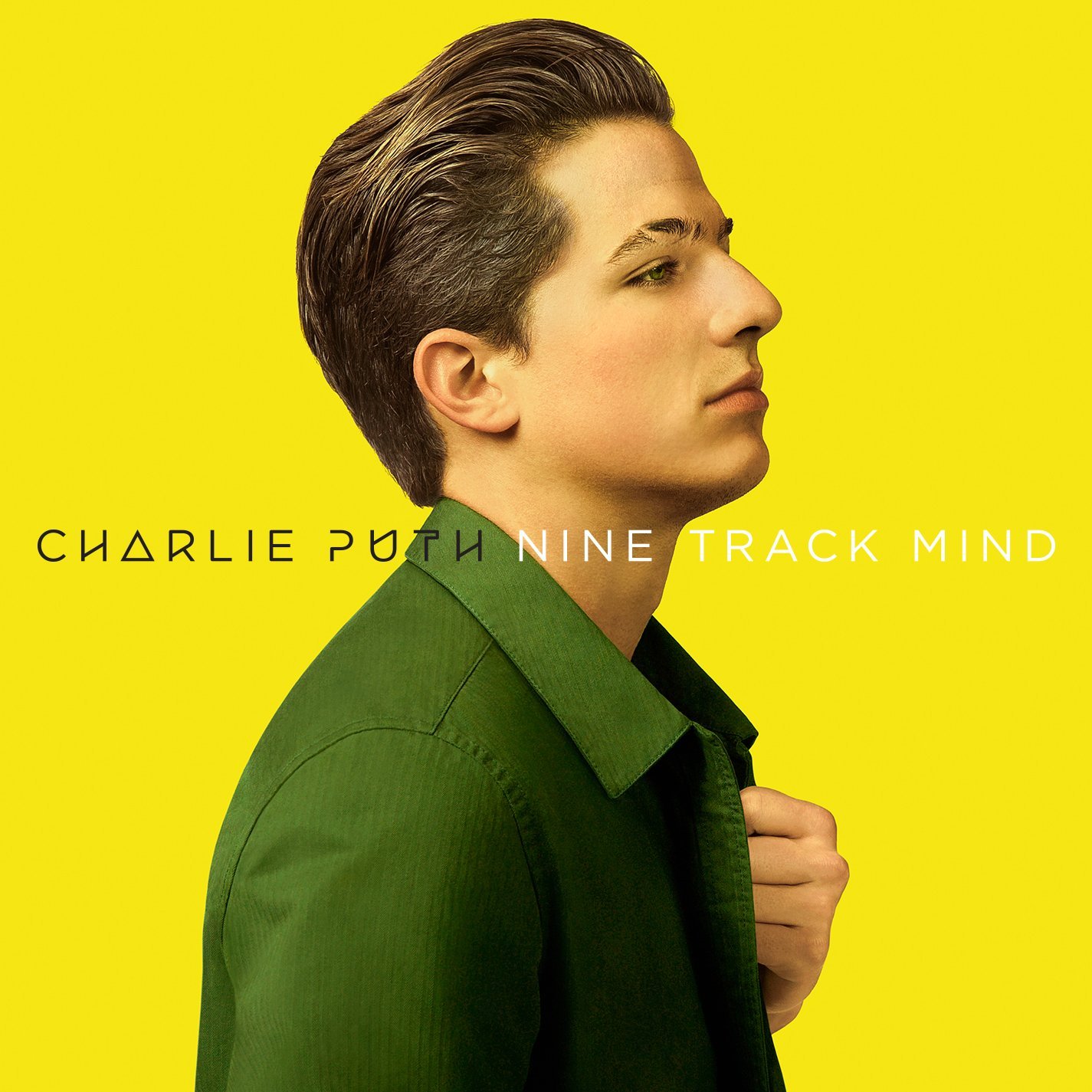
Nine Track Mind
“We Don’t Talk Anymore”; Charlie Puth –

Nine Track Mind
I’m never gonna say that Charlie Puth’s debut Nine Track Mind is an album that should be discovered. It mostly deserves its distinction by critics as a repulsive piece of pop except for one song: “We Don’t Talk Anymore.” The soft-guitar licks and Skrillex-esque flute loops while Puth and featured guest, Selena Gomez—who recorded her vocals in a closet—craft an infectious hook around Family Channel yearning and despair. It is a song that demands to be played repeatedly and overwhelms any compulsion I have to listen to another album. In fact, tripling the listening time I’ve spent with other projects this year. Perhaps, this is the rare phenomenon of a song being so good it becomes on some level, the album. I know this to be puth after recommending Nine Track Mind to a friend, only to realize my glowing recommendation was birthed from subconsciously replacing the entire 12-track listing with “We Don’t Talk Anymore.” I won’t defend the rest of the album but—actually I will, because all 41 minutes and four seconds of “We Don’t Talk Anymore” are heaven. – Jabbari Weekes
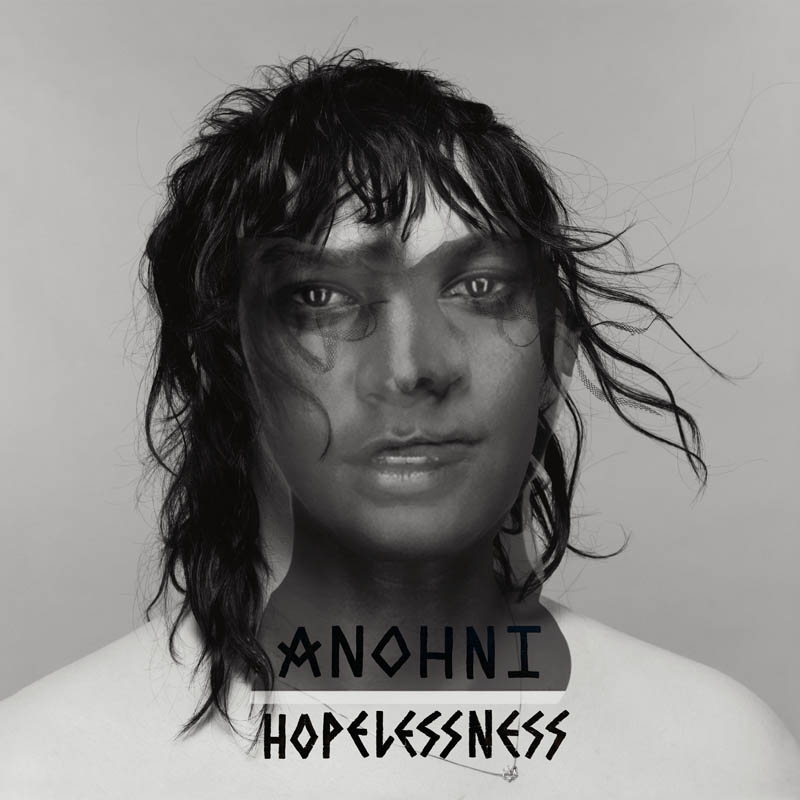
Hopelessness
Anohni –

Hopelessness
Politics permeates our musical and cultural landscape. This isn’t a new concept—we turn to art in times of confusion. But it feels like it’s garnered more traction in the last handful of years. Anohni’s Hopelessness is a remarkable album not simply because it is one of the most openly political records this year (it features a song called “Obama” that does not paint the current president in a kind light, as well as the thematically related “Drone Bomb Me”) but it is also deeply beautiful sonically. Anohni, formerly of the astonishingly good Antony and the Johnsons, sings in a way that whenever she is in pain or aches, the listener feels it too and is deeply empathetic. It’s incredible. Hopelessness manages to weave political themes and charged up lyrics with sizzling and shimmering synths that you can sway or dance to. Anonhi, it should be noted, is transgender, which also impacts the political depth of this record: What we’re hearing is the voice of a trans woman navigating this world. – Sarah MacDonald
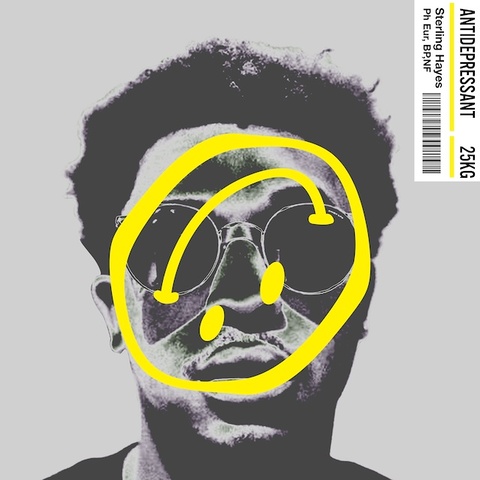 Sterling Hayes – Antidepressant
Sterling Hayes – Antidepressant
Given all the excellent, high-profile music coming out of Chicago’s SaveMoney collective this spring, you’d be forgiven for passing over the odd duck that is this debut album from one of the crew’s least-known quantities. But where his contemporaries made smart bids for bigger audiences, Hayes chose the path of chaos. It paid off. Antidepressant is one of the most satisfyingly weird rap albums of the year, a Frankenstein’s monster of a trap album where lines detailing lethal-sounding cocktails of drugs ram into each other at unexpected angles and soar into modulated, demented sing-songs over production that sounds like someone learning to program new synth patches in a haunted house. At times introspective and sharply observational—listen to the furious, twinkling “My City”—at times simply wild and ridiculous, Antidepressant is above all consistently and disorientingly great. – Kyle Kramer
 Holy Fuck – Congrats
Holy Fuck – Congrats
It’s been six years since we last heard from electronic noise maestros Holy Fuck, and much like the ill-advised proto-Bieber mop you probably sported to their shows during the genre’s mid-00s heyday, they’ve evolved into something sleeker and more sophisticated. Their return on Congrats is arguably the Toronto outfit’s leanest and most melodic record to date—let’s not forget that co-founder Graham Walsh has kept busy behind the scenes working with acts like Metz, !!!, Viet Cong, Alvvays, Doomsquad, and Operators—paring down their kitchen sink of unorthodox instruments for a fourth album that feels more like an arrival. It’s as pensive and danceable as it is a droning, dissonant wash of sound to numb your eardrums to, with Walsh, Brian Borcherdt, Matt “Punchy” McQuaid, and Matt Schulz channeling their experimental recklessness into songs that writhe with newfound self-awareness. It’s Holy Fuck at its most carnal, from sinister, id-driven tracks like “Tom Tom” and “Sabbatics” to chillwave-soaked numbers like “Neon Dad”—all kindling for them to set aflame with gusto on your speakers and on stage alike.
– Andrea Domanick

We Are King
King –

We Are King
We Are King manages to find a way to bring easy-listening R&B into the realm of coffee-shop neo-soul. Instead of aiming for sweaty earthiness, King choose to let their songs feel delicate and glassy, filling them with gleaming keys and understated vocal performances. It’s vapor-funk, dream-soul, the result of a vision that extracts the latent etherealism of innumerable late-80s R&B ballads and brings it to the forefront. Above all, these aren’t empty surfaces, as the songs take melodic and textural turns that give them real heart. The string-laden opening two minutes of “Supernatural” feel like a heart-pulling classic film score before the rest of the song arrives, earthbound and joyous. It’s tough to imagine anyone dismissing We Are King as just “call-waiting” music after hearing it. – Phil Witmer
Want to argue with us? Follow Noisey on Twitter.




